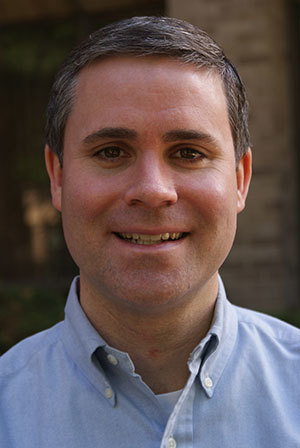 James Sullivan
James Sullivan
James Sullivan, Rev. Thomas J. McDonagh, C.S.C., associate professor of economics and director of the Wilson Sheehan Lab for Economic Opportunities (LEO) at the University of Notre Dame, testified Wednesday (July 15) before the U.S. House of Representatives Committee of Agriculture’s Subcommittee on Nutrition.
Sullivan spoke at the subcommittee’s hearing on “Past, Present, and Future of SNAP: Developing and Using Evidence-Based Solutions.” SNAP is the United States Department of Agriculture’s Supplemental Nutrition Assistance Program.
Sullivan explained that one of the greatest advances in the social sciences in recent decades is the development and application of methods that allow researchers to determine whether social programs are having their intended effect.
“By guiding funds away from ineffective programs, high-quality impact evaluations allow us to do more good with the limited resources available,” he said. “This not only produces better results for those in need, but also for the economy as a whole.
“Recently I co-founded the Wilson Sheehan Lab for Economic Opportunities, which is a research center at the University of Notre Dame that identifies innovative, effective and scalable programs that help those in need move to self-sufficiency,” Sullivan told the subcommitee. “The Wilson Sheehan Lab has partnered with some of the largest private providers of services to the poor in the country, including the Catholic Charities network, as well as state and local governmental agencies, to examine evidence of program effectiveness. These projects include programs to promote community college completion, comprehensive case-management programs, homeless prevention services and diversion programs for first-time, nonviolent offenders. This evidence allows resources to be channeled to the programs that will have the greatest impact on the lives of the most vulnerable.
“As I have learned through my work at the Wilson Sheehan Lab, the idea of impact evaluation is a foreign concept to many local service providers. While these front-line providers are driven by compassion and motivation for helping the poor, most of them design and launch programs without solid evidence of effectiveness. They typically measure outputs or track outcomes for program participants, but rarely are the programs evaluated using rigorous methods. The lack of evidence of what works and what doesn’t is not unique to local programs. The same could be said of many national programs that operate on a much larger scale.”
Sullivan told the subcommittee that there is a clear need for rigorous, experimental evidence of the impact of SNAP in its current form.
“Is SNAP the best way to improve nutritional outcomes for the disadvantaged?” he said. “The honest answer is that we don’t know. Bringing evidence to bear on this question would allow us to better help those struggling to put food on the table.”
Sullivan concluded his testimony by noting that advances in technology and data collection have greatly expanded opportunities to implement high-quality evaluations of social programs.
“Evidence from these evaluations can help in the design of programs that yield better results and guide policy on how best to allocate scarce resources,” he said. “By encouraging innovation and evaluation and by targeting support at interventions shown to be successful, policymakers will ensure that our social programs are more effective at helping vulnerable populations get ahead. We at the Wilson Sheehan Lab welcome this transformation in the way we fight poverty in America.”
Sullivan also is a research affiliate of the National Poverty Center at the University of Michigan. His research examines the consumption, saving and borrowing behavior of poor households in the U.S., and how welfare and tax policy affects the well-being of the poor. His most recent work examines changes in consumption and income poverty in the U.S. over the past five decades.
Contact: James Sullivan, 574-631-7587, jsulliv4@nd.edu